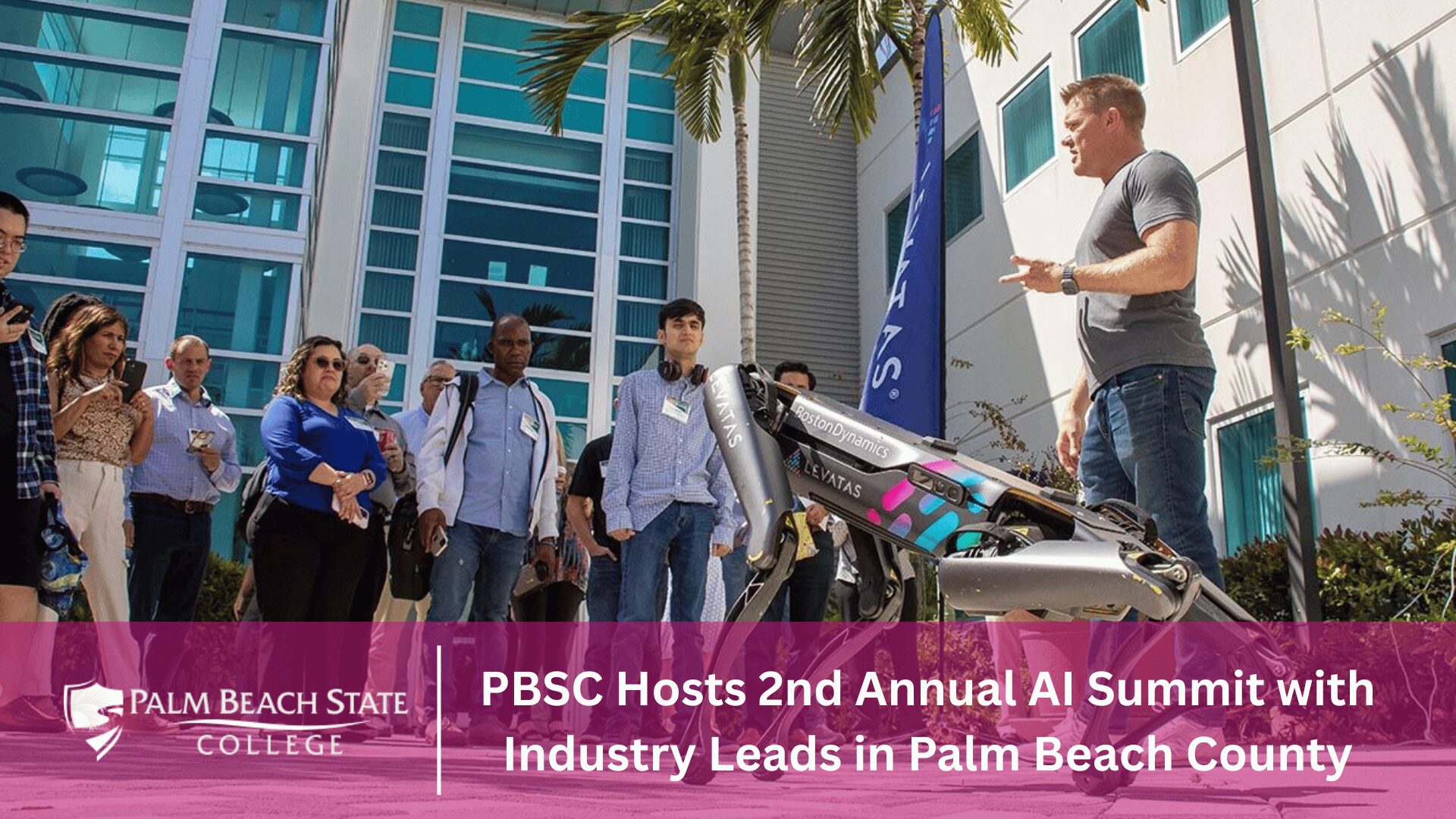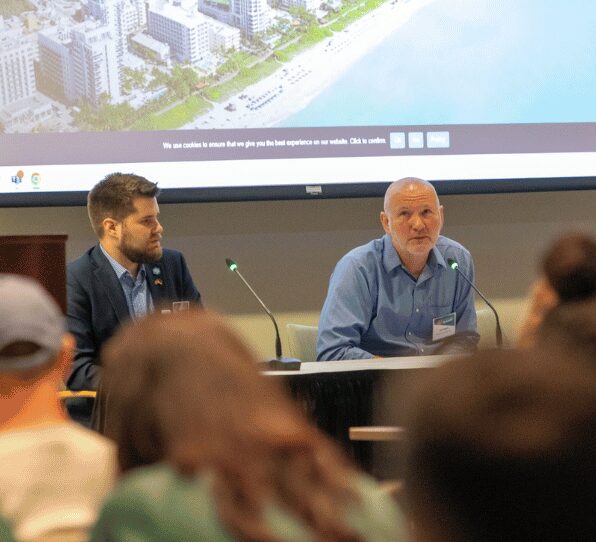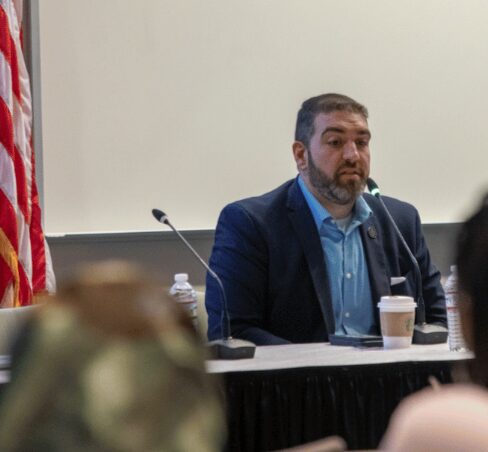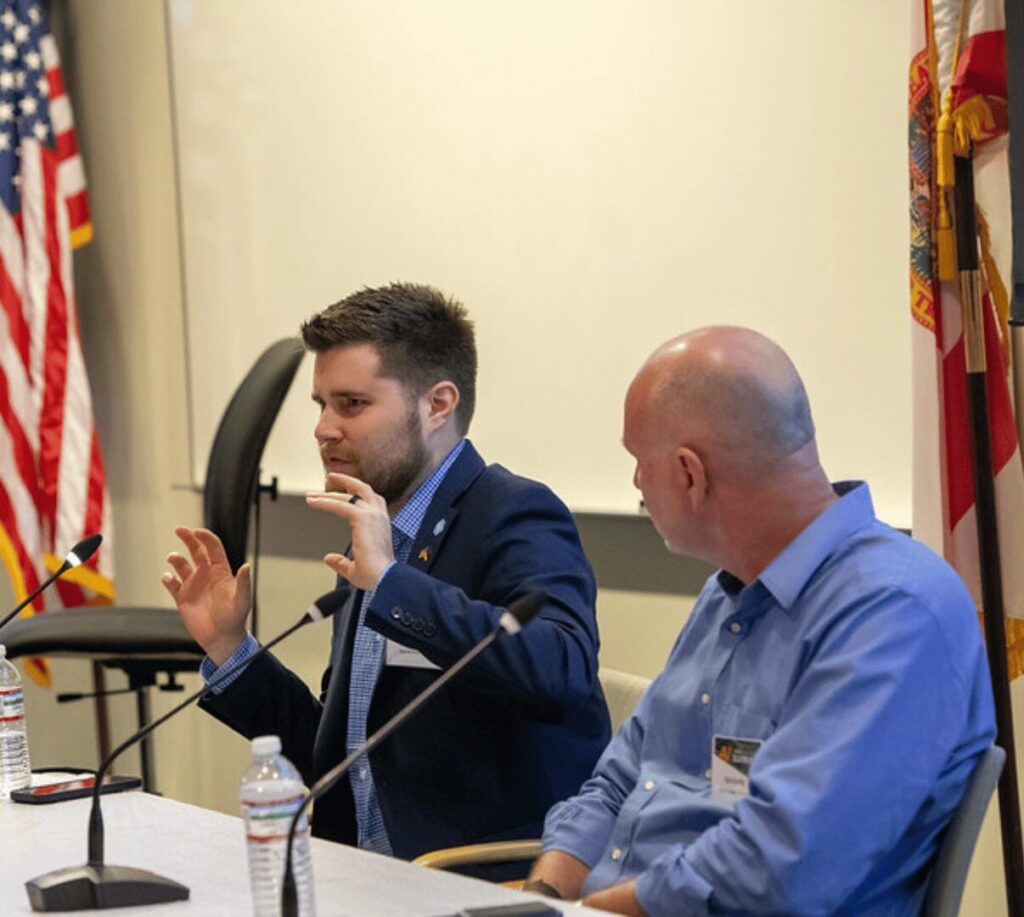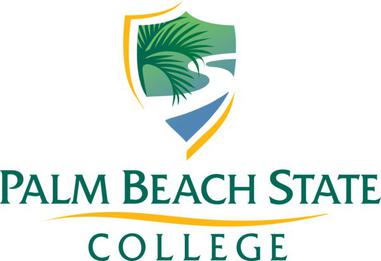 Palm Beach State College brought together business leaders, faculty and students to explore the transformative impact of artificial intelligence (AI) and robotics on society. At the “AI: Here and Now” event on PBSC’s Palm Beach Gardens campus, more than 100 attendees heard from technology leaders who are actively developing and deploying AI solutions.
Palm Beach State College brought together business leaders, faculty and students to explore the transformative impact of artificial intelligence (AI) and robotics on society. At the “AI: Here and Now” event on PBSC’s Palm Beach Gardens campus, more than 100 attendees heard from technology leaders who are actively developing and deploying AI solutions.
“Events like this bring the real-world applications of AI to our campus,” said PBSC President Ava L. Parker, J.D. “We look forward to the college playing a pivotal role in this burgeoning sector our economy.”
The summit showcased how rapidly advancing AI tools—from large language models (LLMs) to autonomous drones—are transforming sectors such as healthcare, finance, infrastructure, and logistics. Speakers included executives and AI developers from companies such as ModMed, The SilverLogic, PeakActivity, Florida Crystals, and ODP Corp, among others.
 At the summit, leading AI developers and executives discussed how AI is rapidly transforming business. “AI will impact all industries from healthcare to finance, retail and even some of the trades,” said Chris Nielsen, founder and CEO of Palm Beach-based Levatas, which develops AI-powered robots, autonomous drones and unmanned submersibles. But with the technology advancing rapidly, few companies understand how to unlock AI’s full potential.
At the summit, leading AI developers and executives discussed how AI is rapidly transforming business. “AI will impact all industries from healthcare to finance, retail and even some of the trades,” said Chris Nielsen, founder and CEO of Palm Beach-based Levatas, which develops AI-powered robots, autonomous drones and unmanned submersibles. But with the technology advancing rapidly, few companies understand how to unlock AI’s full potential.
The AI Summit, Nielsen said, is an opportunity to exchange ideas on how industry can move forward. “Palm Beach State College is doing a great job of facilitating that conversation among business leaders,” he added. South Florida Tech Hub Director of Talent Engagement Ashton Adler agreed. “Our whole mission is to advance the tech ecosystem here in South Florida and Palm Beach State College is exceptional in terms of their vision, innovation and advancement in AI,” she said.
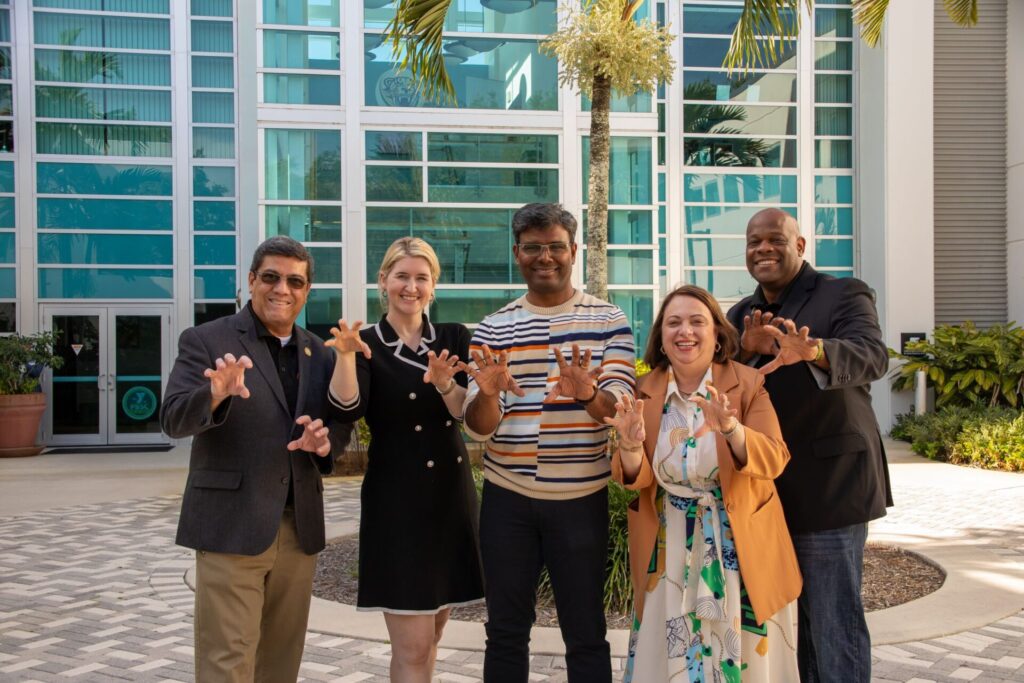
Luis Pentske (PBSC), Ashton Adler (Tech Hub), Vasu Thiyagarajan (ModMed), Angela Harrington (PBSC) and Dean John Hadley (PBSC)
The overarching theme of the event was how large language models, artificial intelligence systems capable of understanding and generating human language by processing vast amounts of data, will reshape the job market, eliminating some roles while creating new opportunities. According to a 2023 report from McKinsey Global Institute, 50% of current work activities could be automated using AI technologies, especially in industries that involve manual and administrative work. AI, the speakers stressed, will eliminate some roles but it will also create many new opportunities.
Despite AI’s potential disruptive impact on certain industries, it should be embraced, not feared, all the speakers agreed. Workers can prepare for AI-driven job changes by focusing on skill development, adaptability, and collaboration with AI technologies, according to Rich Coggins, vice-president and distinguished engineer at ODP Corp. the Boca Raton-based company that owns Office Depot. “As long as we treat AI as a tool and not a crutch, it can really elevate our critical thinking and problem-solving,” Coggins said.
Participants emphasized how AI augments and enhances human capabilities. For instance, in fields like medicine, AI systems can help free up the time for busy doctors by transcribing notes, entering and organizing patient data and even diagnosing patients, potentially serving as a means for providing a second opinion for physicians.
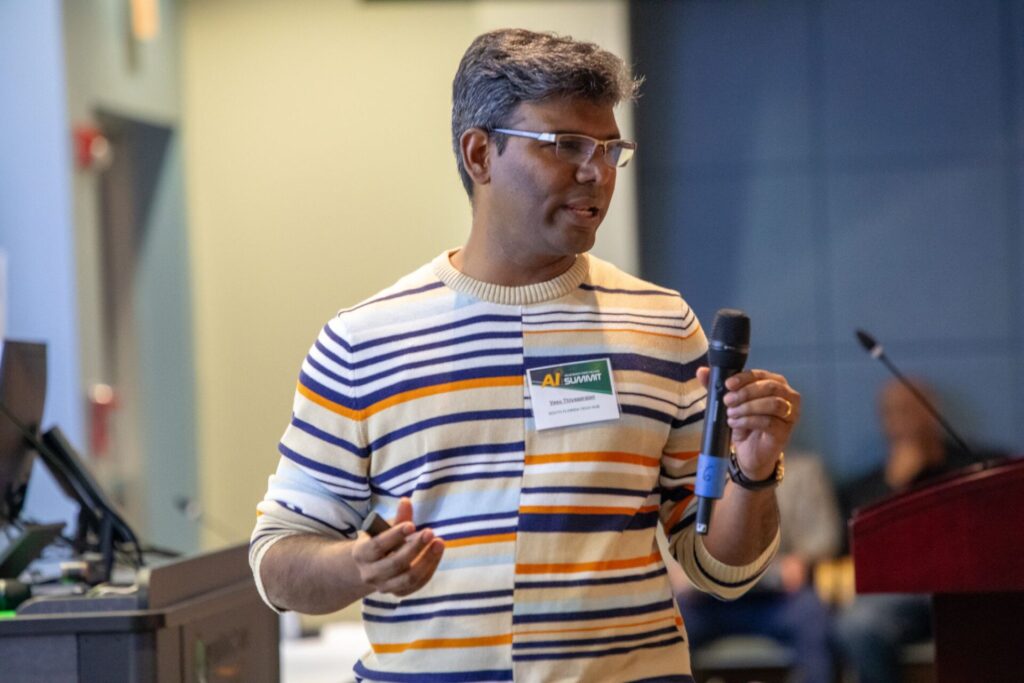
Vasu Thiyagarajan, VP Architecture & Platform at ModMed, gives keynote about the impact of AI in healthcare.
Vasu Thiyagarajan, vice-president of architecture & platform at ModMed, spoke about how his company uses AI to streamline administrative processes for physicians. ModMed’s software uses AI to automate tasks such as scheduling, insurance verification, and medical coding, he said, which reduces inefficiencies and allows healthcare providers to focus on patient care, not paperwork.
AI-powered solutions are also helping to automate other time-consuming tasks in other industries. Levatas’ Nielsen spoke about his company’s partnership with Skydio. The latter, a San Mateo, Calif. based manufacturer of autonomous drones. Skydio uses AI through its “Skydio Autonomy” engine, enabling drones to perform complex tasks autonomously, including obstacle avoidance, 3D mapping, and object recognition. Both Nielsen and PBSC alumnus and Skydio Solutions Engineer Bryan King described how together they set new standards for efficiency and safety in sectors like infrastructure inspection and data collection.
During a wide-ranging panel discussion moderated by Martin Carbrey, Senior Director with Florida Crystals, experts discussed the emerging AI technologies likely to change the way we work. AI is no longer confined to a single, generative agent, noted several of the panelists.
Instead, many like Rob Petrosino, chief innovation officer at digital strategy and technology consultancy PeakActivity and strategic engagement advisor for the FBI, believe the future lies in multi-agent systems. In these systems, specialized AIs work together to tackle complex tasks. AI isn’t just about generative models anymore, Petrosino said. Instead, it’s about creating a team of AIs, each with their own expertise, working in unison. “This will unlock a human hybrid workforce where your reasoning agent will be your work partner,” Petrosino predicted.
The constantly evolving AI landscape means colleges and universities need to educate all students and not just those studying technology, about AI. “In order to stay relevant, all colleges need to not just allow the use of AI but encourage and foster that use,” said David Hartmann, Founder and CEO The SilverLogic, a Boca Raton based provider of AI-driven solutions. “AI is what everyone will be expected to use once they leave college and enter the workforce.”
PBSC, which offers an Applied Artificial Intelligence Associate in Science degree and related college credit certificates, believes events such as the Summit will encourage students to experiment and adopt the AI tools of the future and businesses to learn from one another.
For more photos from the AI: Here & Now Summit click here.

